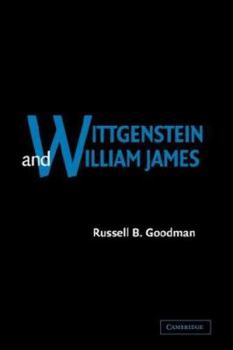Wittgenstein and William James
Select Format
Select Condition 
Book Overview
This book explores Wittgenstein's long engagement with the work of the pragmatist William James. In contrast to previous discussions, Russell Goodman argues that James exerted a distinctive and pervasive positive influence on Wittgenstein's thought. He shows that both share commitments to anti-foundationalism, to the description of the concrete details of human experience, and to the priority of practice over intellect. Considering in detail what...
Format:Paperback
Language:English
ISBN:0521038871
ISBN13:9780521038874
Release Date:July 2007
Publisher:Cambridge University Press
Length:228 Pages
Weight:0.85 lbs.
Dimensions:0.5" x 6.0" x 9.0"
Customer Reviews
0 rating





